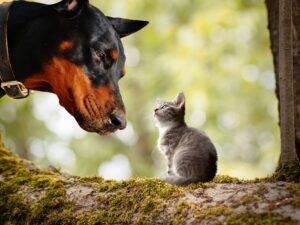Embrace Curiosity on Your Kindness Journey
If you understand each other,
you will be kind to each other.
John Steinbeck
This is an update of a previous post. It is #4 of our series: The 9 Cs of Kindness.
We all make judgments about others, based on attitudes we acquired from our families or from our own experiences. Over time, they become a part of us. When we withhold kindness from someone because of those judgments, we can be aware that we do not have enough information about them. We can choose to wonder about them.
Here is where I can call on my curiosity. I can open the door to connection by greeting someone I had ignored before with a smile and a nod, or a simple greeting. As I reach out in this way, I acknowledge the other person, and a connection is made. A short conversation may follow, and if I listen with an open mind and open heart, I will begin to see that we share certain experiences or hopes for our lives.
Of course, I don’t need to get to know someone in order to drop my judgments. I can change the way I am looking at them. By looking through a kindness lens, I can see that each person is doing the best he or she can in this moment.
Curiosity brings me back into my heart.
I could ask myself:
If I had been born into the life that she was born into, what would my childhood have been like and who would I be now? What economic opportunities and support systems did I have that she did not have? What mental or physical disabilities are contributing to her behavior now?
What natural talents was he born with that his life path did not enable him to develop, so he is not now enjoying the expression of those talents and being supported by them? Did he have anyone supporting and loving him as he grew up, or was he on his own, even as a child, to figure out how to survive in this world?
I don’t know the answers to any of these questions, and the answers would help me to understand why he is showing up in the world now in the way that he is.
Those answers would open my heart and enable me to see him as another myself – another person wanting to be seen and accepted, wanting to be loved and to express love, wanting all his basic needs to be met so he could have the space in his life to become all that he is capable of.
When I am back in my heart, kindness flows easily.
Self-Reflection
Curiosity also invites change. It might even open the door for us to look at own lives:
When we make a conscious choice to live with kindness, we are called to look at people through a compassionate lens.
Self-reflection can be uncomfortable, but it often helps us to understand ourselves better. We may ask why it is so hard to be kind to some people. By considering our feelings, we might gain insights that will enable us to soften our judgments and expand our kindness practice.
Often, we don’t give ourselves the opportunity to get to know people we disagree with. We see them as those people who are against me.
The Sufi poet, Rumi, shed some light on this:
Your task is not to seek for love, but merely to seek and find all the barriers
within yourself that you have built against it.
That calls for some self-reflection. I realize that so much of what shows up in our lives is a result of the lens through which we view others. As hard as it is for us to look at, we do have to admit that we build barriers to love when we see people who disagree with us as our enemies. That puts up a wall between them and us that prevents us from even trying to understand each other.
Curiosity is an antidote to judgment.
Many of us have allowed political views to solidify into intractable positions of “I am right, and you are wrong, I am a good guy, and you are an enemy.” As a country, we have turned the idea of brotherhood into one of “us and them.”
How did we get to this ugly place once again?
I believe that we forgot how to love each other. Love does not mean agreeing on everything. It means working to understand each other and to find common ground on which to build a future together.
Turn judgement into curiosity.
Step one is to be curious. Why do they think that way? What do they really want for their lives? Can we find common ground and remember our kinship?
Paul Tillich answers these with a simple formula:
The first duty of love is to listen.
How do we even begin to answer these questions if we are not talking to each other?
Daryl Davis
The Black musician, Daryl Davis, provides an example. He has made it his mission to befriend people in hate groups like the Klu Klux Klan by calmly confronting them with the question: “How can you hate me if you don’t even know me?”
“Give them a platform,” he said. “You challenge them. But you don’t challenge them rudely or violently. You do it politely and intelligently. And when you do things that way, chances are they will reciprocate and give you a platform.”
That approach leads to the discovery of the common ground that you both stand on - values, hopes for the future, what you really want for your lives. Once you find out that you agree on many issues, the barriers come down and you no longer see each other as enemy.
Daryl’s efforts resulted in several clansmen becoming his friend and giving up their clan membership. Our challenge is a bit different, but the message is the same. When we take down the barriers in ourselves that prevent us from getting to know people who disagree with us, we find that we have more in common than we thought.
We are more alike than we realize.
Of course, most of us do not have the time or inclination to go out and engage people one-on-one in conversation about our different views. But we can begin by accepting the idea that we do have a lot in common. We are all individuals, and we cannot be painted by the same brush, which is colored by the ideas in someone else’s head about who we are.
As Jim Krueger reminds us, in the song made famous by Dave Mason,
There ain’t no good guy, there ain’t no bad guy.
There’s only you and me, and we just disagree.
We have the power to change.
We do have the power to let go of judgments about each other and to remind ourselves that we are probably more alike than we thought. Then we will remember how to love each other and to begin to build a better future together.
Love is what the world needs now, and it’s ours to give. Let’s expand and deepen our kindness journey and flood the world with love, sweet love.
Wishing you joy on your journey.
Image by Vicki Hamilton from Pixabay
We invite you to enjoy:
the song, "What the World Needs Now"
Daryl Davis's compelling TED talk
The 9 Cs of kindness are words that describe important aspects of a kindness journey. We invite you to check them out: Choice, Commitment, Connection, Curiosity, Courage, Compassion, Change, Community, Celebration


Dear Pat,
This is the first time I have read your healing words…due to your beloved husband’s sharing, after your passing from this world.
Thank you. Thank you. Thank you….balm for us all! May you rest now in eternal peace knowing that kindness will win out in the end.
Larry, thank you for sharing your Beloved’s holy work with us. May your beautiful memories together bring you much comfort & joy.
Heartfelt condolences for your sudden loss.
Michele 🙏